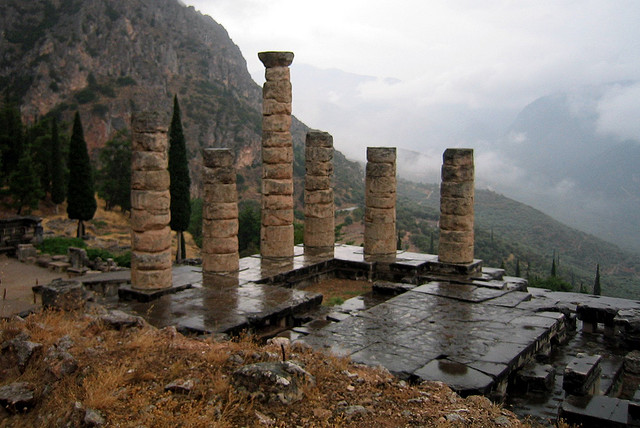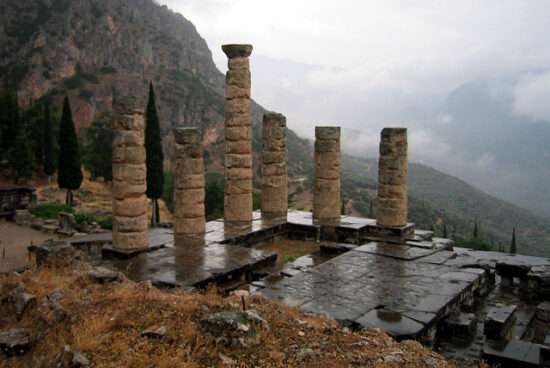Recently on Netflix I caught a Canadian TV series called MythQuest. Its first and only season was shown in 2001. As a science fantasy, MythQuest falls within the purview of our consideration as fantasy and science fiction fans.
Let’s look at the concept, the writing, and the acting.
Concept
Any fantasy or science fiction dispenses pills to swallow, assumptions against reality between you and the writer. The premise needs to come early. Stories shouldn’t be like CalvinBall where the rules change midstream.
MythQuest prescribes it pills in the first episode. Alex and Cleo’s father Matt is building a Cyber Museum. Into his big-screen computer he scans archeological artifacts and categorizes them into ‘rooms’. But something goes a bit haywire after he scans in a Chinese moon goddess statue. The scan reveals a filled cavity within the statue. He pries open the statue and finds the Gorgos stone.
So what’s that? Here’s the first pill to swallow. Seems that there’s this trickster god named Gorgos who has his panties in a wad because he doesn’t have his own myth. The other gods had trapped him in a stone.
Anyway, Matt the dad proceeds to scan the stone and…
Wrong-o.
The stone scans but good. Here we get to the second pill: The stone scans itself into the Cyber Museum and disappears.
Suddenly the Cyber Museum is a whole lot more realistic and dad can’t help himself but to touch the image of the Gorgos stone on the screen.
Poof! He’s gone. That’s the third pill.
Enter kids. They wonder where dad went and why he left his sandwich behind. The police think he’s abandoned the family, though the car is still in the garage and nothing’s missing except that the moon goddess statue is lighter than previously. The museum Matt works at thinks he’s absconded with the unaccounted-for weight.
Enthralled by the new and improved Cyber Museum, Alex touches an object and is whisked to the myth of Theseus and the Minotaur. And we viewers get the last pill to swallow. This isn’t time travel; it’s myth travel.
On top of all the other problems, Gorgos is trying to destroy the myths.
For some reason, he’s bitter. You would be too if you hadn’t gotten your own myth.
Each episode has Alex or Cleo reliving a myth while trying to find dad, beat Gorgos, and protect Earth’s heritage of myths.
It’s an interesting concept that had enough material for several seasons. But alas, it was not to be.
Writing
The writing for MythQuest is spotty. The overall stories are good, but some episodes bog down in the dialogue. To me, the writing for the present day drags, takes detours that are abandoned, and leaves some characters undeveloped.
One problem I kept having was with the mother. O, she seems upset a bit in the first episode when her husband turns up missing. But as the episodes go on, mom seems to have come to terms with the loss of her hubby and all too well. Even the kids briefly think she’s flirting with the detective. Maybe she didn’t like Matt. She speaks fondly of him from time to time, but still no grief. This needed to be tidied up a bit.
The writing for the actual myths and the interaction between Alex and Cleo is better. The series hits a stride in the later episodes, especially “Minokichi,” “The Blessing,” and “Quetzalcoatl.”
Sometimes as Alex or Cleo live the myths, time skips ahead, giving them a chance to lead a lifetime within a single character. This I liked and reminded me of the episode of Star Trek: The Next Generation when Captain Picard lived a whole life on an extinct alien planet within the span of… well, of an episode.

Myth Tree photo credit: AlicePopkorn via photopin cc
Back to MythQuest. The series ends with questions still hanging about. Where’s dad? How will they get him back? What about this Gorgos fellow? What’s the diagnosis on the professor? (A little side plot.) How will Cleo feel when the myths are done and she has no further escape from her wheelchair?
And the big question: Will the mom be glad or sad to get back dad?
Acting
With acting we have a bit of a problem. The best acting by far was done by Alex (Christopher Jacot) and Cleo (Meredith Henderson). The supporting actors were adequate. The extras were – how shall I put this? – terrible, especially in crowd scenes.
Some of this ironed out as the series progressed. The episode with the best bit players is “The Blessing,” a later episode which makes for not only an interesting story but a moving one as well.
Recap
I define this television series as science fantasy seeing that the Cyber Museum is science and the whole myth world is fantasy. The series perked my interest in the myths of differing cultures, the more obscure myths we don’t hear about as much as the Greek or Norse stories.
MythQuest offers up a handful of easily swallowed pills, bumps over a few rough spots in writing and acting, but overall proves to be an enjoyable series.
Try it out and shoot me a comment.




Comments are closed.